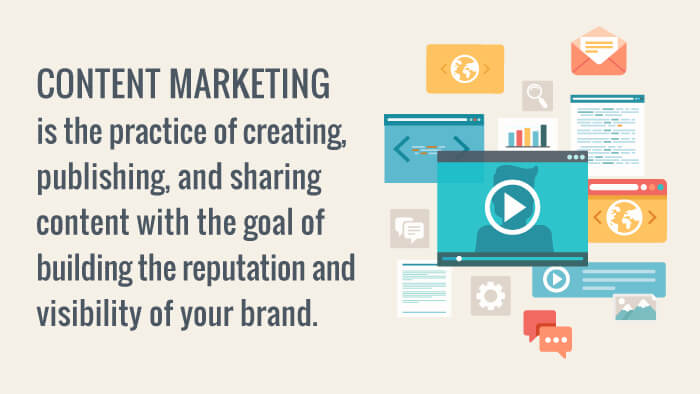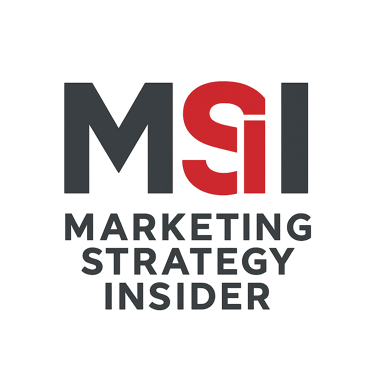What is Content Marketing? Types, Importance & Agency Services Explained
What is content marketing? Learn its types, importance, and how agencies & services help brands grow with strategic content.
SEO
Ryan
9/29/20253 min read


Content marketing is one of the most effective ways to build trust, attract an audience, and drive long-term growth. But many people still ask: what is content marketing, and why is it so important today?
In this blog, we’ll break down the basics of content marketing, explore different types, discuss its importance, and look at how content marketing agencies and services help brands succeed.
What is Content Marketing?
At its core, content marketing is a strategic approach to creating and distributing valuable, relevant, and consistent content to attract and engage a clearly defined audience—and ultimately, to drive profitable customer action.
Unlike traditional advertising that interrupts consumers, content marketing provides useful information that answers their questions, solves their problems, or entertains them. This builds trust and positions your brand as an authority.
In short: instead of shouting “buy from us,” content marketing says, “here’s something helpful.” Over time, this trust leads to conversions and loyalty.
Why Content Marketing is Important
Consumers are more informed and skeptical than ever before. Traditional ads are often ignored, skipped, or blocked. Content marketing cuts through this resistance by building relationships instead of interruptions.
Here’s why content marketing matters:
Boosts Visibility & Awareness
Consistent content improves search rankings and helps more people find your brand.Builds Authority & Trust
Sharing expertise through blogs, guides, or videos positions your business as a thought leader.Nurtures Leads
Content like case studies, webinars, and newsletters educate prospects and move them along the buyer journey.Supports SEO
Well-optimized content ranks on Google, bringing in organic traffic for years.Drives Conversions
Content addresses objections and encourages people to act—whether signing up, buying, or contacting you.
In other words, content marketing isn’t just about brand awareness—it’s a revenue driver.
Types of Content Marketing
Content marketing isn’t limited to blog posts. There are many ways to engage audiences:
Blogging
The foundation of most strategies. Blogs drive organic traffic, answer common questions, and improve SEO rankings.Social Media Content
Posts, stories, and reels on platforms like LinkedIn, Instagram, and TikTok help brands engage directly with audiences.Email Marketing
Personalized newsletters and campaigns nurture relationships and encourage repeat business.Video Marketing
From YouTube tutorials to TikTok clips, video is highly engaging and shareable.Infographics
Visual content simplifies complex data and encourages shares.Podcasts
Audio shows help build a loyal following and position brands as authorities in niche topics.Case Studies & Whitepapers
These forms of content demonstrate expertise and build credibility with more serious prospects.
Each type of content works best when aligned with your audience’s needs and the customer journey stage.
How Content Marketing Services Help Businesses
Not every business has the time, skill, or resources to produce high-quality content consistently. That’s where content marketing services come in.
Professional services typically include:
Strategy development
Content creation (blogs, videos, graphics)
SEO optimization
Content distribution across channels
Analytics and reporting
Hiring a content marketing agency ensures your brand gets expert support to create consistent, engaging, and ROI-driven content.
Working with a Content Marketing Agency
A content marketing agency goes beyond creation—they act as a growth partner. Here’s what agencies typically provide:
Research & Strategy – Identifying your audience, keyword research, and competitor analysis.
Content Calendar – Ensuring consistency across weeks and months.
Multi-Channel Approach – Blogs, social, email, and paid promotion working together.
Measurement & Optimization – Tracking KPIs like traffic, leads, and conversions.
For businesses, working with an agency means faster execution, higher quality content, and scalable results.
Content Marketing vs. Traditional Marketing
It’s worth emphasizing how different content marketing is from old-school advertising:
Traditional marketing = interruption.
Content marketing = permission and value.
For example:
A TV ad tries to grab your attention for 30 seconds.
A blog post solves a problem you’re already searching for.
This difference makes content marketing more sustainable and cost-effective in the long run.
Steps to Create a Successful Content Marketing Strategy
Define Your Audience
Understand who you want to reach—their needs, challenges, and online behavior.Set Clear Goals
Brand awareness? Lead generation? Conversions? The strategy changes depending on the goal.Choose the Right Content Types
Mix blogs, videos, infographics, and social content depending on your audience.Create a Content Calendar
Plan topics, publishing dates, and distribution methods to stay consistent.Optimize for SEO
Use keyword research and on-page optimization to increase visibility.Promote Your Content
Don’t just publish—share via email, social, and PR to maximize reach.Measure and Improve
Track analytics, learn what works, and refine your approach.
Challenges in Content Marketing
While powerful, content marketing comes with challenges:
Producing consistent, high-quality content
Standing out in competitive industries
Measuring ROI effectively
Keeping up with algorithm and platform changes
The solution is to stay flexible, test different content formats, and continuously analyze performance.
Final Thoughts
So, what is content marketing? It’s the art and science of creating valuable, relevant content that builds trust and drives business results.
With the right strategy, businesses can attract, engage, and convert audiences without relying solely on traditional ads. Whether you manage it in-house, use content marketing services, or partner with a content marketing agency, one thing is clear: content is no longer optional—it’s essential.
In 2025 and beyond, brands that invest in content will outshine those that don’t.
